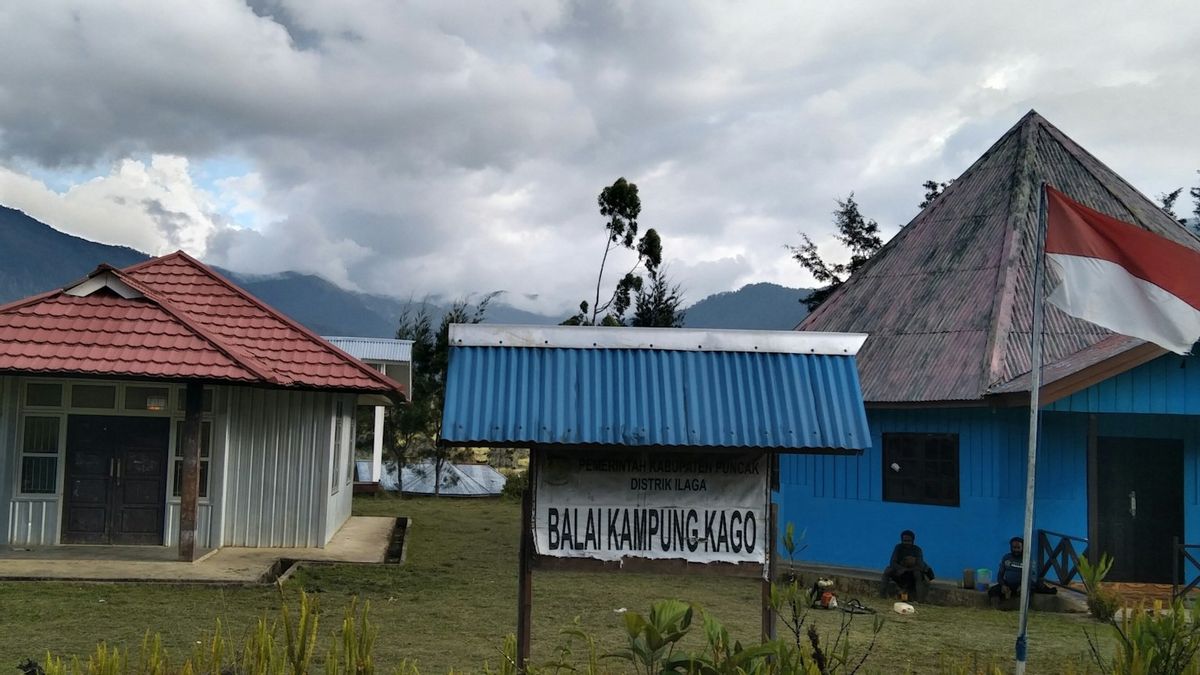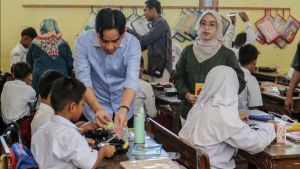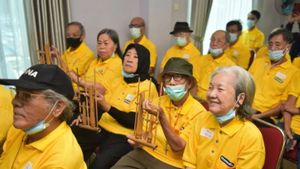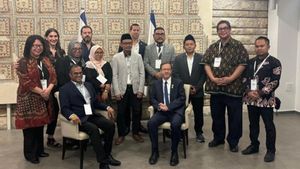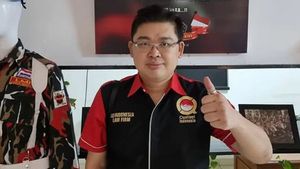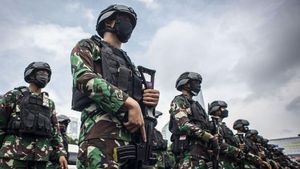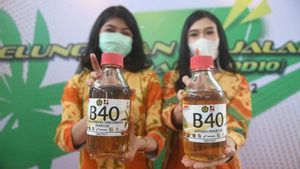JAKARTA - Chairman of the Indonesian House of Representatives, Puan Maharani, led the House of Representatives to meet Melanesia's clumpy countries with one of the discussion points related to developments in Papua. This is considered important considering that Melanesia countries in the Pacific often highlight the issue of Papua in the international community.
The countries in question are members of the Melanesian Spearhead Group (MSG), an inter-governmental organization with Melanesia clumps in the Pacific region. A meeting with MSG representatives was held in a parliamentary dialogue on the sidelines of the 2nd Indonesia-Pacific Parliamentary Partnership (IPPP) session held by the DPR in Jakarta, Thursday (25/7) yesterday.
"This IPPP can be seen as enrichment from Indonesia's efforts to keep Papua a part of the Republic of Indonesia," said Paramadina University International Relations Lecturer, Anton Aliabbas, Friday, July 26.
The IPPP Forum itself is an initiative of the DPR to strengthen partnerships in the Pacific region where the first meeting was held in 2018. At a meeting with MSG, the DPR delegation was chaired directly by the Chairman of the DPR RI, Puan Maharani, accompanied by Deputy Speaker of the DPR Lodewijk F Paulus and Chairman of the BKSAP DPR Fadli Zon.
Meanwhile, the MSG who came were the Speaker of the Parliament of the Republic of Fiji, Ratu Naiqam Lalailavu, the Speaker of the Solomon Islands Parliament, John Patterson Oti, Papua New Guinea (PNG) MP Johnson Wapunai, to the Director General of MSG who is a figure from PNG, Leonard Louma.
In the meeting wrapped in the dialogue session, Puan detailed the big development of Papua that has been carried out by Indonesia. Puan revealed that the Indonesian government has prioritized development in the leading regions of Indonesia, including Papua.
SEE ALSO:
In fact, Puan detailed the improvement in development in Papua covering thousands of highways to many other infrastructure facilities such as hundreds of schools, health facilities, several airports, ports, and even distribution of electricity. To MSG, Puan emphasized that development in Papua has also been able to increase the Human Development Index and reduce poverty significantly.
Anton assessed that the efforts made by Puan and the ranks of the DPR were quite significant considering that the Melanesia countries in the Pacific, which are directly adjacent to the Cenderawasih Earth, often highlight the Papua issue in international forums, such as at the United Nations.
"Because after all, the support from MSG and countries in the South Pacific region is crucial to prevent the potential escalation of the Papua issue at the international level," he said.
Anton also highlighted the DPR's message to MSG that the state really pays attention to the welfare of the Papuan people. In the dialogue between the DPR and MSG, it was also conveyed that the DPR played an important role in strengthening political institutions, strengthening democracy, and implementing Papua's Special Autonomy.
One of them is by supporting the full implementation of the Papua Special Autonomy Law through the formation of the Papuan People's Assembly as an institution for representation of the Papuan people. The DPR also supports Papua's specificity by authorizing Papua in formulating a typical law in Papua.
Puan also explained that the DPR's support is included in the expansion or expansion of the province so that Papua has now become 6 provinces which aim to make equitable development more optimal.
For information, MSG is an intergovernmental organization of Melanesia countries in the Pacific region consisting of Fiji, Front de Liberation Nationale Kanak et Socialiste (FLNKS), Papua New Guinea, Solomon Islands, and Vanuatu.
Several MSG countries often raise the issue of Papua in international forums, especially related to human rights issues. Even Vanuatu openly supports Papua's independence from Indonesia.
For this reason, the soft parliamentary diplomacy approach taken by the DPR is considered to be able to increase the Government's efforts to ensure Indonesia's sovereignty over Papua. Especially the approach to countries in the Pacific that often bring the Papua issue to the global realm.
"The steps taken by Puan and the DPR cannot be separated from the strengthening of the Government's efforts to increase cooperation with countries in the South Pacific region," explained Anton.
Furthermore, the Head of the Center for Intermestic and Diplomatic Engagement (CIDE) appreciates the DPR for initiating a cooperation forum with the Pacific parliament through IPPP. Moreover, said Anton, Puan also highlighted the issue of the importance of regional security stability in the midst of geopolitical threats.
"We must also increase our attention to the South Pacific region. After all, geopolitical dynamics in the future will also occur in the region considering that China has carried out a significant expansion of cooperation there," he explained.
"Thus, strengthening cooperation with passive countries in many ways needs to be done, not only regarding Papua but also touching other essential things," added Anton.
On several occasions at the 2nd IPPP Session, Puan stated that Indonesia and Pacific countries have similarities as archipelagic countries surrounded by waters and oceans, including similarities in values.
As an archipelagic country, Indonesia and Pacific countries are considered to face the same challenges as the threat of climate change, disaster, and challenges in marine and water management.
This similarity is considered to be the capital for better relationship development in the future with a focus on working together on issues that are of common interest.
In this case, according to Puan, the foundation of the strong relationship between Indonesia and Pacific countries is a relationship based on the principle of equality, mutual respect for sovereignty and territorial unity, and peaceful coexistence.
Puan also emphasized that all countries involved in the IPPP have the same place and can stand equally high, and both comply with international law and UN charter.
For this reason, Puan invites Pacific countries as a big family to work together in building mutual trust (trust), and mutual understanding in order to create peace, and stability in the region.
The English, Chinese, Japanese, Arabic, and French versions are automatically generated by the AI. So there may still be inaccuracies in translating, please always see Indonesian as our main language. (system supported by DigitalSiber.id)
